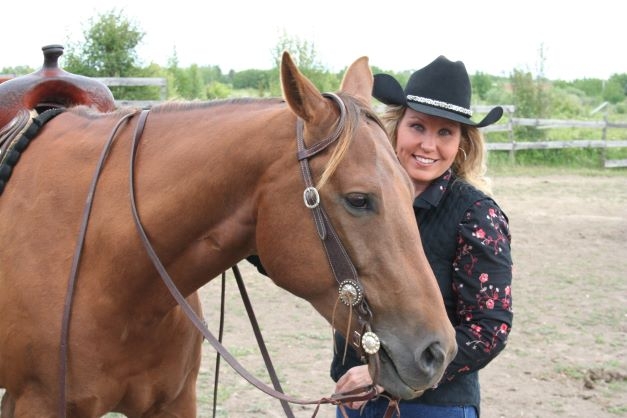By Jill Montgomery
I have a friend who is a very successful horse trainer, judge, owner of a beautiful facility and many champion horses. He teaches riding lessons, volunteers for civic and youth groups and seems to be ready to help whenever a person is in need and a horse is involved. He is a great guy. He is also tired, bone tired. He says, “Jill it feels like I am putting ten days into every seven, and I am still having trouble keeping up with everything that I want to get done.” My friend is at high risk for burn out.
People who teach riding lessons, provide boarding services, or otherwise have the care and management of horses as their job are often passionate about their work. For many it isn’t just a job, it is their purpose in life. As rewarding as it can be, finding balance can be a challenge.
Many equine professionals work in very demanding environments. Seven-days a week, wearing most of the hats, if not all, for necessary tasks and weather dependent revenue can dampen the spirits of even the most passionate. When your livelihood and lifestyle depend on sustaining this passion, the old saw, “If you do what you love, you’ll never work a day in your life” can get a little thin. It can become a lifestyle lacking balance and lead to burn-out.
To better understand what burn out is and how to avoid or reverse it, I reached out to Tara Gamble, Past CHA President, multi-talented horseperson from Edmonton, Alberta and Lisa Lombardi, a highly accomplished horse person from Santa Rosa, CA. Both of these women are credentialled in many Certifications CHA has to offer and Certifiers in several specialties. They also both provided talks for CHA Members on this topic. Their research and tips lay out a practical guide to recognize and fight off burn out. I put a set of questions to them. The following lists compress their answers into points you can use for a quick self-check and perhaps adopt some ideas to help fireproof yourself from burn out.
What is Burn Out?
- Burn out is a term usually related to work, most often your regular job.
- Burn out is emotional, physical, and mental exhaustion caused by relentless stress.
- When you are burned out, the job you used to love is now a chore, it is overwhelming.
- Burn out can show up as physical pain, chronic fatigue, irritability, and inability to focus.
- Burn out is often characterized by hopelessness, detachment, and resentment.
Are Equine Professionals More Susceptible to Burn Out than Others?
- Few jobs demand the 24/7 responsibilities that can go along with owning and running a lesson barn or boarding stable. Horses must be cared for every day.
- Few jobs provide an activity that carries a real risk of someone being killed or maimed for life.
- Horse people have strong work ethics and may not recognize when they need to take a break.
- The knowledge and skill required to do these jobs effectively may keep some from being good delegators. This may lead them to become overcommitted.
- Many equine businesses don’t produce healthy profit margins which creates financial stress. For some, one unexpected large expense, such as a vet bill, can be catastrophic.
Are there Early Warning Signs an Equine Professional is Headed toward Burn Out?
Whether these changes have crept up on you or they have crashed in seemingly all at once, check for these kinds of behaviors and decide if they are persistent changes or represent a temporary mood, perhaps linked to a specific stressful event.
- Tasks that may never have been your favorite, now seem impossible to do, or even start.
- Behaviors in people or horses that were previously just unwelcome, now really irritate you.
- You lose patience with people or horses while teaching them.
- You feel exhausted physically, mentally, or emotionally most of the time.
- You have physical pains like headaches, sore back, upset stomach, with no discernable cause.
Any of the points listed above may occur in a perfectly healthy person temporarily. But, when they represent distinct change in how you have traditionally approached your work or feel, you may want to consider taking steps to fight burn out. If most of the list applies to you, seeking change is important.
What Can an Equine Professional Do to Avoid or Reverse Burn Out?
CHA has educational resources on their website to assist in managing areas of your business that may help you to avoid burn out. Tara Gamble’s webinar on Managing Stress in the Horse Industry is one great example and can be found here. CHA Facebook groups offer networking and potential problem solving support from people who know the business and its unique challenges. Talking with fellow horse people can be a great outlet for the Equine Professional who is feeling burned out.
- Re-evaluate your workload and prioritize how you are spending your time and resources.
- Intentionally put variety in your work every day.
- Delegate where you can. Be that feeding, cleaning, or admin, get some help.
- Set clear expectations and boundaries for your clients and yourself.
- Schedule downtime and take it.
This list can go on and on. Give yourself permission to take good care of yourself. You only get one body in this trip through life. Finding balance and recognizing that even if you need to push hard reaching a high value goal, there must be recuperative time, too. Don’t be the frog in the pot who fails to recognize the water is boiling because when it got in there it was cool.
I leave you with Lisa’s excellent advice.
Lisa’s Short List of Important Ways to Take Care of Yourself.
- Have Proper Footwear. (No hoof no horse goes for people too.)
- Eat Well.
- Sleep Enough.
- Ride Your Own Horse.
###

